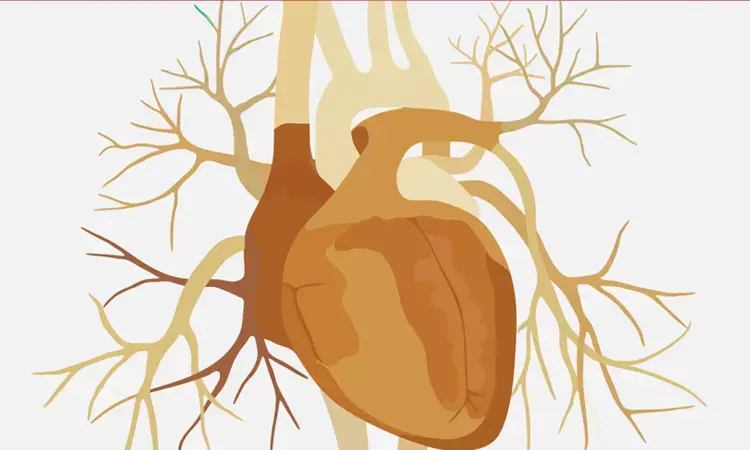- Home
- Medical news & Guidelines
- Anesthesiology
- Cardiology and CTVS
- Critical Care
- Dentistry
- Dermatology
- Diabetes and Endocrinology
- ENT
- Gastroenterology
- Medicine
- Nephrology
- Neurology
- Obstretics-Gynaecology
- Oncology
- Ophthalmology
- Orthopaedics
- Pediatrics-Neonatology
- Psychiatry
- Pulmonology
- Radiology
- Surgery
- Urology
- Laboratory Medicine
- Diet
- Nursing
- Paramedical
- Physiotherapy
- Health news
- Fact Check
- Bone Health Fact Check
- Brain Health Fact Check
- Cancer Related Fact Check
- Child Care Fact Check
- Dental and oral health fact check
- Diabetes and metabolic health fact check
- Diet and Nutrition Fact Check
- Eye and ENT Care Fact Check
- Fitness fact check
- Gut health fact check
- Heart health fact check
- Kidney health fact check
- Medical education fact check
- Men's health fact check
- Respiratory fact check
- Skin and hair care fact check
- Vaccine and Immunization fact check
- Women's health fact check
- AYUSH
- State News
- Andaman and Nicobar Islands
- Andhra Pradesh
- Arunachal Pradesh
- Assam
- Bihar
- Chandigarh
- Chattisgarh
- Dadra and Nagar Haveli
- Daman and Diu
- Delhi
- Goa
- Gujarat
- Haryana
- Himachal Pradesh
- Jammu & Kashmir
- Jharkhand
- Karnataka
- Kerala
- Ladakh
- Lakshadweep
- Madhya Pradesh
- Maharashtra
- Manipur
- Meghalaya
- Mizoram
- Nagaland
- Odisha
- Puducherry
- Punjab
- Rajasthan
- Sikkim
- Tamil Nadu
- Telangana
- Tripura
- Uttar Pradesh
- Uttrakhand
- West Bengal
- Medical Education
- Industry
Coronary sinus reducer can reduce angina symptoms in refractory angina patients, unravels study

A new therapeutic device, the Coronary Sinus Reducer (CSR), is making waves in the treatment of refractory angina, providing significant symptom relief and improving the patients' quality of life. Despite advances in revascularization techniques, refractory angina remains a challenging clinical condition by significantly impairing patients' lives.
A recent single-center, observational study highlighted the promising results of CSR as a viable option for such patients. This study evaluated a total of 55 patients, predominantly male (87.3%), with advanced angina (baseline CCS angina class 3.15 ± 0.6) and high cardiovascular risk profiles. These patients, with no further revascularization alternatives, underwent CSR implantation, marking a new chapter in managing this complex condition.
In terms of safety, the procedure proved highly successful, with device deployment achieved in all patients and only one periprocedural complication recorded, underlining the feasibility of the technique. At the 3-month follow-up, the results showed substantial improvements in both symptom management and quality of life. Angina control, assessed through the Canadian Cardiovascular Society (CCS) angina classification, showed statistically significant reductions in symptoms.
The patients also experienced better physical performance, as reflected in the 6-Minute Walk Test (6-MWT), with an increase in walking distance from an average of 233.3 meters to 305.2 meters (p < 0.0001). Quality of life assessments painted an equally optimistic picture. Measurements using tools like the SF-36 and EQ-5D-5L questionnaires indicated marked progress.
Also, the patients reported enhanced physical and mental well-being, increased daily activity levels, and greater overall satisfaction with life. The EQ-VAS, a visual analog scale for self-rated health, further corroborated these findings, revealing a significant rise in perceived health status.
The study illuminated the potential of CSR to transform care for refractory angina patients. As an innovative approach targeting the coronary sinus to reduce myocardial ischemia, the device offers new hope to a patient group often left with limited options.
While the study focused on mid-term outcomes at 3 months, the positive trends in angina relief, physical ability, and quality of life make a strong case for broader adoption of CSR therapy. Further long-term studies will be crucial to establish its sustained efficacy and safety profile. Overall, CSR represents hope for the patients with refractory angina by marking a significant step forward in personalized cardiovascular care.
Source:
Włodarczak, S., Rola, P., Jastrzębski, A., Turkiewicz, K., Korda, A., Włodarczak, P., Barycki, M., Kulczycki, J. J., Furtan, Ł., Włodarczak, A., & Lesiak, M. (2024). Safety and Effectiveness of Coronary Sinus Reducer in the Therapy of Refractory Angina Pectoris—Mid-Term Results of the Real-Life Cohort. In Journal of Clinical Medicine (Vol. 13, Issue 15, p. 4413). MDPI AG. https://doi.org/10.3390/jcm13154413
Neuroscience Masters graduate
Jacinthlyn Sylvia, a Neuroscience Master's graduate from Chennai has worked extensively in deciphering the neurobiology of cognition and motor control in aging. She also has spread-out exposure to Neurosurgery from her Bachelor’s. She is currently involved in active Neuro-Oncology research. She is an upcoming neuroscientist with a fiery passion for writing. Her news cover at Medical Dialogues feature recent discoveries and updates from the healthcare and biomedical research fields. She can be reached at editorial@medicaldialogues.in
Dr Kamal Kant Kohli-MBBS, DTCD- a chest specialist with more than 30 years of practice and a flair for writing clinical articles, Dr Kamal Kant Kohli joined Medical Dialogues as a Chief Editor of Medical News. Besides writing articles, as an editor, he proofreads and verifies all the medical content published on Medical Dialogues including those coming from journals, studies,medical conferences,guidelines etc. Email: drkohli@medicaldialogues.in. Contact no. 011-43720751


